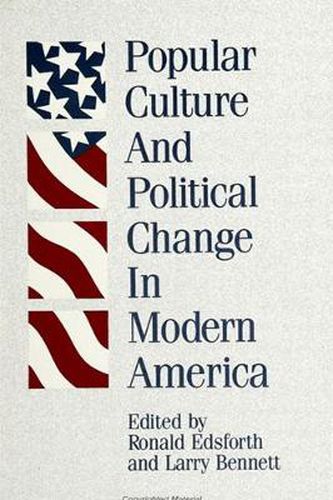Readings Newsletter
Become a Readings Member to make your shopping experience even easier.
Sign in or sign up for free!
You’re not far away from qualifying for FREE standard shipping within Australia
You’ve qualified for FREE standard shipping within Australia
The cart is loading…






This book is a collection of essays dealing with the ways in which specific popular entertainment media, mass consumer products, and popular movements affect politics and political culture in the United States. It seeks to present a range of possibilities that reflect the dimensions of the current debate and practice in the field. Some of the contributions to this volume place popular culture media such as films, music, and books in a broad social context, and several articles deal with the historical roots of twentieth-century American popular culture. Popular culture is treated as categorically neither good nor bad, in either political or aesthetic terms. Instead, the essays reflect the editors’ convictions that popular culture is simply too important to be ignored by those academics who treat politics and its history seriously. The collection also shows that studying popular or mass culture in a historical way illuminates a variety of possible relationships between popular culture and politics.
$9.00 standard shipping within Australia
FREE standard shipping within Australia for orders over $100.00
Express & International shipping calculated at checkout
This book is a collection of essays dealing with the ways in which specific popular entertainment media, mass consumer products, and popular movements affect politics and political culture in the United States. It seeks to present a range of possibilities that reflect the dimensions of the current debate and practice in the field. Some of the contributions to this volume place popular culture media such as films, music, and books in a broad social context, and several articles deal with the historical roots of twentieth-century American popular culture. Popular culture is treated as categorically neither good nor bad, in either political or aesthetic terms. Instead, the essays reflect the editors’ convictions that popular culture is simply too important to be ignored by those academics who treat politics and its history seriously. The collection also shows that studying popular or mass culture in a historical way illuminates a variety of possible relationships between popular culture and politics.